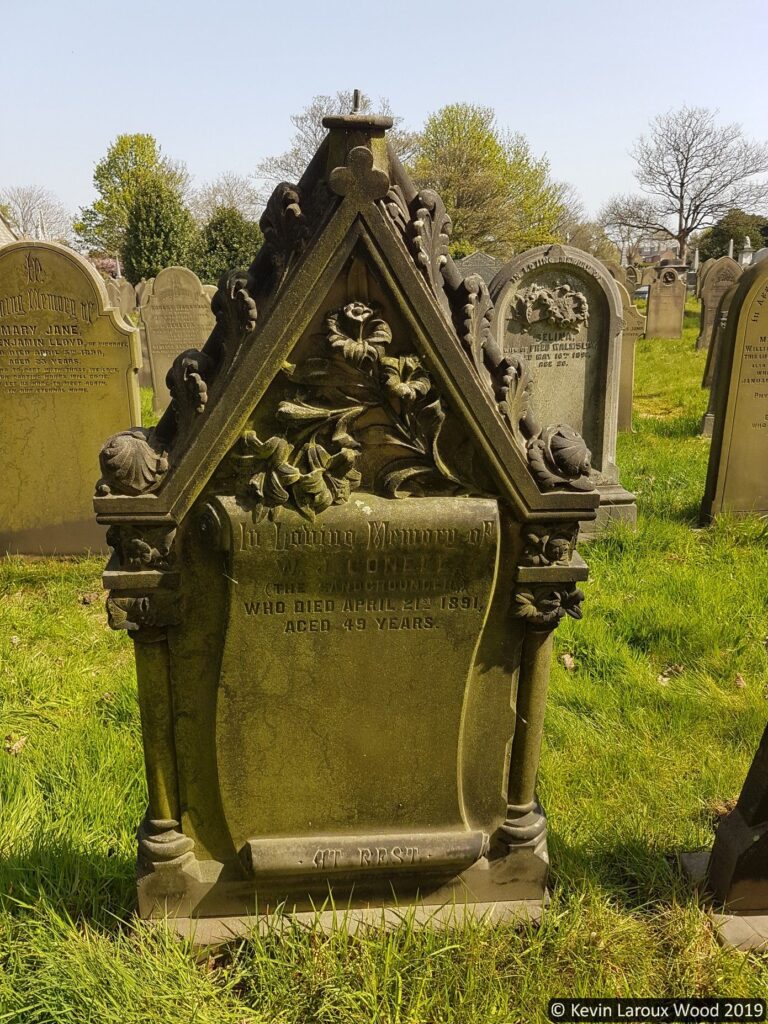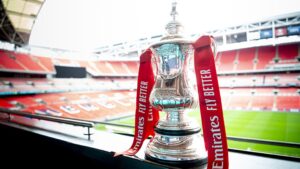In this article, we embark on a series that delves into the lives of individuals who have made significant contributions to multiple sporting institutions in Southport. Our journey begins with the remarkable story of William Conell, a man whose influence stretched across various facets of the town’s sporting landscape. From his pivotal role in reviving the Southport Cricket Club in 1883 to his longstanding association with Southport Football Club, Conell’s legacy is a testament to the interconnectedness of sports and community in Southport’s rich history. As we explore his life, we will uncover not only his achievements but also the challenges he faced, painting a vivid picture of a man who played a crucial role in shaping the sporting culture of his time.
Southport Cricket Club’s ground on Manchester Road was lost for housing in 1875 and the club had one troubled year at Scarisbrick New Road before disappearing altogether. In 1883 a trio of friends got together to attempt its revival.
They chose the Treasurer of Southport Football Club to be the new captain of Southport Cricket Club in 1883…and that man was William Conell.
William was a well-known local journalist, but many people didn’t actually know his name.
Born in Caversham Oxfordshire he became an actor in London and through his stage career became good friends with Charles Dickens and also the greatest showman, P.T.Barnum, who has his own links to Southport through his second wife Nancy Fish.
His first introduction to the press came in London writing articles on theatre production but he first came to the attention of the Southport public when he was promoted to the permanent staff of the Southport Visiter, becoming an assistant reporter in 1873, writing under the pseudonym “The Sandgrounder”.
He became the editor of Southport Visiter and held that post for 10 years, before moving to become the editor of the Southport News and then later the Southport Standard.
It is therefore because of the work this man did that we know so much today about the early years of sport in the town.

24 July 1879
Image © Reach PLC. Image created courtesy of THE BRITISH LIBRARY BOARD.
Its no surprise given his background that he was a prominent member of the Southport Amateur Dramatic Society but he was also a member of the Athletic Society, often acting as a judge at the towns big athletic festivals, and did many years good work for the Ratepayers Association, the Company-house Keepers Association and Licensed Victuallers Association.

28 April 1882
Image © THE BRITISH LIBRARY BOARD. ALL RIGHTS RESERVED.
Sadly, despite being good at looking after other people’s finances, he was poor at looking after his own and he was considered a bankrupt in 1886.

10 September 1885.
Image © THE BRITISH LIBRARY BOARD. ALL RIGHTS RESERVED.
Struggling with the weight of his troubles, at 49 years of age, it is believed that he took his own life by drinking prussic acid whilst on the train home from London in 1891, being found dead upon arrival at Lord Street Station.
At the inquest held at Southport Town Hall on 23rd April 1891, Edward Bland, also a local journalist, whom some of you will know as the author of the annals of Southport and who had been a good friend of William for 17 years described his death. Bland was asked about Conells state of mind leading up to his death:
“Coroner – Did you see or hear anything that would lead you to believe he would take away his life?
Bland – No Sir
Coroner – Had he been in a depressed state of mind lately?
Bland – He had had a great deal of trouble financially for a long time
Coroner – Had that trouble been greater than usual of late?
Bland – Yes, he was pressed very much financially
Coroner – Do you know what business would take him to Warrington and Manchester?
Bland – I know he went to Warrington on previous occasions when similarly pressed. Neither I nor Mrs. Conell know to whom he went.Albert Lacey, porter at Hunt’s Cross Station, said the deceased alighted there from the 7.31 train from Warrington on Tuesday evening. Witness told him at what time the next train for Southport left, and afterwards accompanied him to a neighbouring public-house where deceased had some whiskey and witness had a bottle of stout. Deceased said, “It’s beastly cold. I am all of a shiver,” and witness noticed that he was trembling. Witness saw the deceased enter the train for Southport, but did not notice anything strange about him except that he was shaking and shivering. Deceased was alone in a third-class compartment, and witness told the guard to keep his eye upon him, because the witness thought he might fall asleep. Deceased had had drink before he alighted at Hunt’s Cross.
Arthur Hall, the guard of the train, said very shortly after leaving Hunt’s Cross he noticed the deceased had apparently fallen asleep. At Birkdale Palace Station the ticket collector went into the compartment to collect his ticket. Witness told him not to disturb the deceased, whose ticket, pipe, and stick were lying on the seat opposite him. The collector accordingly only took the ticket, and closed the door. On arriving at Southport witness went into the compartment to rouse the deceased, and found that he was dead.
John Brierley, station-master at Southport, deposed to having the body removed to the gentlemen’s waiting room, and to afterwards finding the bottle produced under one of the seats of the compartment in which the deceased travelled. Drs Thornton and Jones. who had been called in the meantime, both said the bottle had contained prussic acid.
Detective-inspector Halsall said he searched the body, and found upon him 9s 4d in money, some County Court summons torn to pieces, and some other documents.
The Coroner briefly summed up, remarking that it was a painful matter to both him and the jury as they had known Mr. Conell for many years as a journalist of no mean ability.
the jury returned a verdict to the effect that deceased had committed suicide through a fit of temporary insanity.”
(Liverpool Echo, 23rd April 1891)
Walter Crompton, apprentice to Mr. Ashton the chemist on Lord Street, said that Conell had called into the shop at about 12:30 the preceeding Tuesday and asked for a wide-necked bottle. It was assumed that it was to be from this bottle that he took his fatal sip.
Upon his death he was described as one of the most popular men in Southport, a bright, clever and genial man.

30 April 1891
Image © Reach PLC. Image created courtesy of THE BRITISH LIBRARY BOARD.
Due to his many financial troubles he unfortunately had been unable to leave anything for his wife, so the town rallied round and a large meeting was held to raise funds for her. His last message to his wife upon leaving London had been a telegram to say “It was all right”.
One year before Conell’s death in 1890, the Alexandra Cricket Club changed its name and became known as Southport Cricket Club. Southport Cricket Club and Birkdale Cricket Club then combined to become the Southport & Birkdale Cricket Club in 1902, playing out of the same Trafalgar Road home that they still use today.
Discover more from Southport Central
Subscribe to get the latest posts sent to your email.

 1 - 3 v FC Halifax Town (H) 11/10/2025
1 - 3 v FC Halifax Town (H) 11/10/2025 




More Stories
The Price Of Saying No
Friday Night Football
Fifty Years On: Counting the Cash, Missing the Moment